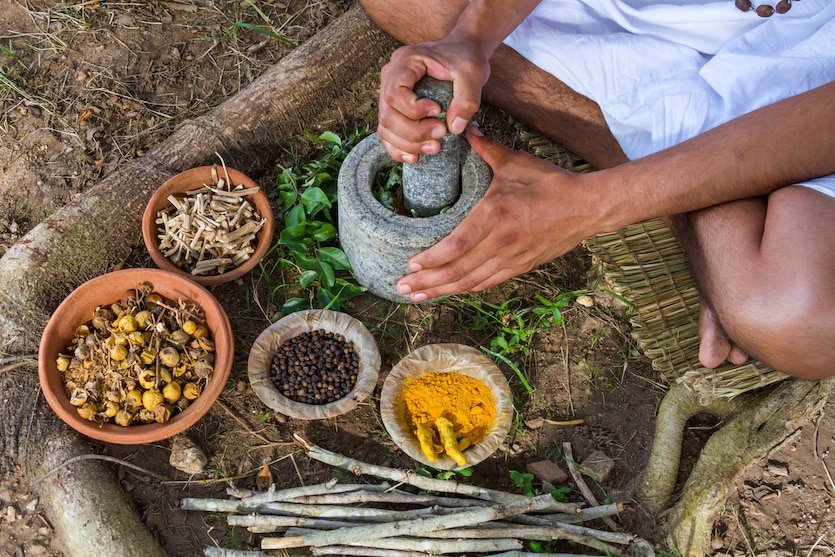Traditional Healers – Behavioral sciences explore the cognitive processes within organisms and the behavioral interactions between organisms in the natural world. It involves the systematic analysis and investigation of human and animal behavior through the study of the past, controlled and naturalistic observation of the present and disciplined scientific experimentation and modeling.
It attempts to accomplish legitimate, objective conclusions through rigorous formulations and observation. Generally, behavior science deals primarily with human action and often seeks to generalize about human behavior as it relates to society.
Traditional Healers
Definition of Traditional Medicine:
The World Health Organization (WHO) defines traditional medicine as “The sum total of the knowledge, skills, and practices based on the theories, beliefs, and experiences indigenous to different cultures, whether explicable or not, used in the maintenance of health as well as in the prevention, diagnosis, improvement or treatment of physical and mental illness”
Definition of Folk:
Folk may be defined as the great proportion of the members of a people that determines the group character and that tends to preserve its characteristic form of civilization and its customs, arts and crafts, legends, traditions, and superstitions from generation to generation
Meaning of Folk and Traditional Healer
A folk traditional healer is an unlicensed person who practices the art of healing using traditional practices, herbal remedies and even the power of suggestion. A folk healer may be a highly trained person who pursues his specialties, learning by study, observation and imitation. In some cultures a healer might be considered to be a person who has inherited the “gift” of healing from his or her parent. The ability to set bones or the power to stop bleeding may be thought of as hereditary powers.

Major types of Folk and Traditional Healers in Bangladesh
Ayurvedic Medicine is also called Ayurveda.
The term Ayurveda combines two Sanskrit words: ayur, which means life, and veda, which means science or knowledge. Ayurveda means “the science of life.”

This fact has been known to Ayurveda for thousands of years the benefit comes from using the whole plant, not just an isolated ingredient. Because they contain whole herbs and fruits, Ayurvedic formulas are safer and more effective as opposed to Western formulations which often times have harmful side effects. Hamdard Ayurvedic pharmaceutical industry producing many ayurvedic medicines.
Homeopathic Medicine
Homeopathic medicine is a form of alternative medicine that uses very small amounts of natural substances, which in higher amounts would cause a disease. The theory behind homeopathic medicine is that “like cures like,” and that a substance that causes an illness in a healthy person
might cure those symptoms in someone who is ill.
Religious healer
Faith healing is healing through spiritual means. Believers assert that the healing of a person can be brought about by religious faith through prayer and/or rituals that, according to adherents, stimulate a divine presence and power toward correcting disease and disability. Belief in divine intervention in illness or healing is related to religious belief.
Some Muslim and Hindu believers going to religious scholars and majar (special graveyard) donate money/food to cure complicated diseases, for job promotion, for improvement in business, for better result in examination, for good relation love and affection etc.

Unani Herbal Healing
Good health is a real blessing and is something money can’t buy Unani medicine is tradition originated in Greece, and was introduced in India by Arabs and Persians. Honey is the base of most Unani medicine, while herbs, minerals, pearls, certain metals, animal parts and other ingredients are used to produce curative potions. This system has different kinds of massages, and the use of leeches to suck out toxins has even been pioneered in some surgeries.Shakti and Shadhona Aushodhaloy produces many Unani medicines.
How traditional healer services are used by people for health care.
Traditional Healers (THs) play a significant role in a health system. THs are usually informal, unrecognized by the government, and do not interact with the rest of the health system. Yet they can be a formal part of a system.
The rural population of Bangladesh has traditionally depended on folk medicinal healers for treatment of their ailments. These healers use medicinal plants as their primary source of medicinal formulations.
Rural patients are more dependent on traditional or folk medicinal healers for treatment of urinary tract infections (UTIs) and sexually transmitted diseases (STDs) for a number of reasons including
- Lack of access to modern medical facilities,
- clinging to traditional approaches,
- And finally hesitancy to relate this form of illnesses in front of unknown doctors.
Since the traditional healer usually resides in the same village or in an adjoining area, the patient is more comfortable in seeking them for treatment. Populations throughout Africa, Asia, and Latin America use traditional medicine to help meet this primary health care needs.
Traditional healers played an important role in Indian subcontinent long before the introduction of Western medicine. Although modern health professional play a key role of health care system, traditional healers and their practice still exist in most rural areas of Bangladesh.
